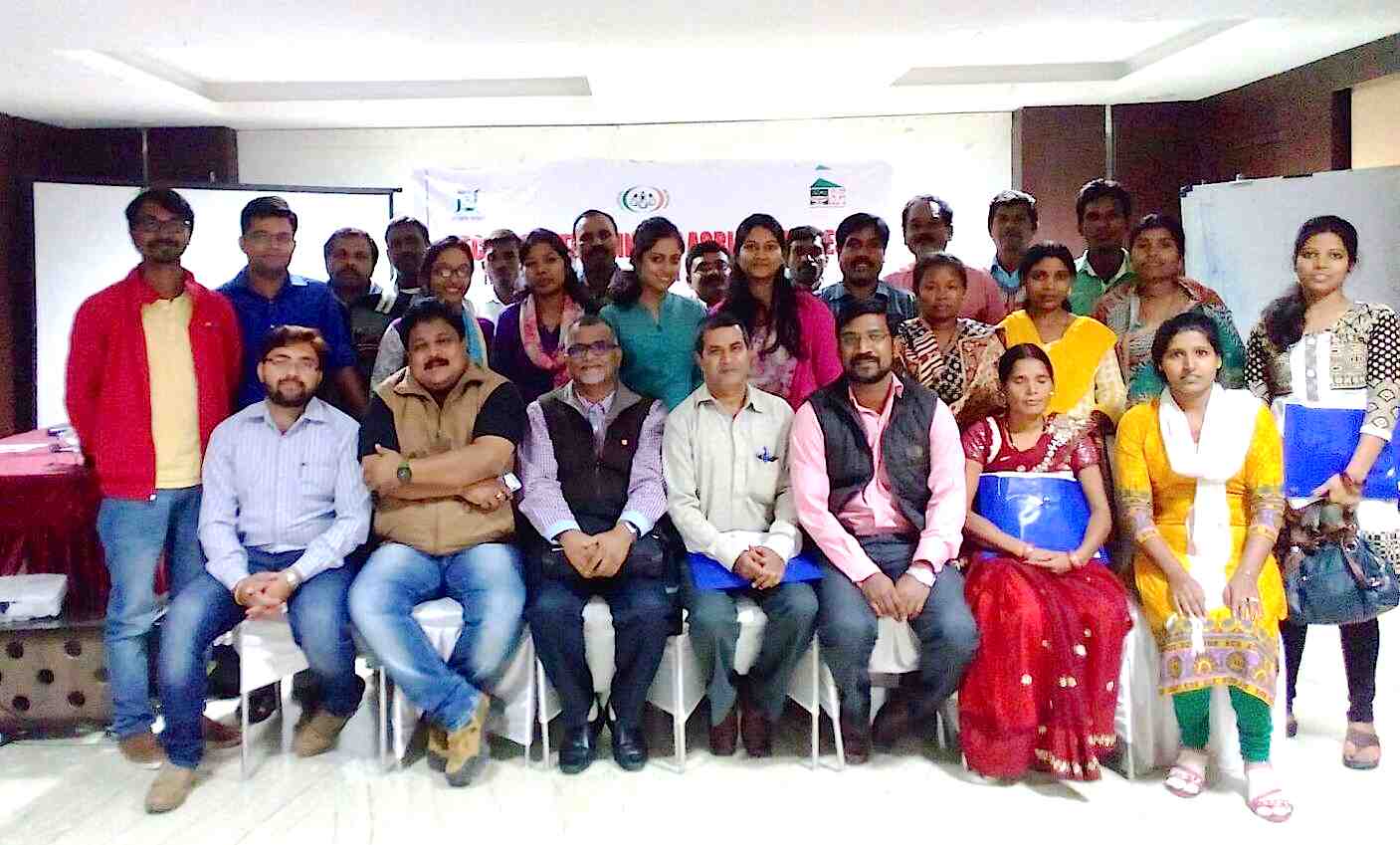To learn more about Digital Green’s AI-powered platform and how it impacts small-scale farmers in India, Ethiopia, Kenya, Nigeria and Brazil, we encourage you to sign up for our newsletter.
Finding Hope Amidst Despair

Agriculture is the primary source of livelihood and the mainstay of about 80 per cent of the rural population in the state of Jharkhand. Most of the farmers are small and marginal landholders. In Jharkhand 92 per cent of the total cultivated area is un-irrigated thus agriculture here is characterized as nature dependent, coupled with mono cropping and low investment capacity of farmers pushing them into the vicious cycle of poverty.

Average annual rainfall in Jharkhand ranges between 1200 – 1400 mm, of which more than 80 per cent is confined within the four monsoon months (June-September). Due to the failure of monsoon this year, farmers in Jharkhand suffered a great loss of Kharif crops and distress among the farmers is very evident. Rabi season is just around the corner, but preparedness among the farmers is not very evident as Rabi is mostly rain-fed and scanty rainfall during monsoon has its effect on the Rabi season also. The smile on the face of farmers is fading as deficit rainfall is threatening to push the state towards a drought.
Digital Green and Jharkhand State Livelihood Promotion Society (JSLPS) made a series of visits and interacted with the farmers helping us realize the need to create hope by suggesting alternate measures and crops.
Digital Green’s Thematic Expert on Agriculture Dr. Ritesh Kumar and an independent agricultural expert, Dr. Ravi Bhushan Singh reviewed the situation and developed an alternate plan in an effort to support JSLPS strengthen its extension efforts. They conducted focused group discussions (FGDs) and informal interactions and farm visits to understand the possibilities of alternate crops for the Rabi season.

It was observed that, farmers are in agony, they were lacking any alternate plan and they were ready to move out of the village in search of other livelihood options. But when certain agri-interventions were introduced to them, and once they were convinced that these could be implemented with the limited resources they have, they felt happy and were enthusiastic about adopting them, shared Dr. Kumar, Digital Green.
Based on the learning from the field, we identified some relevant agri-practices and came up with a plan to scale up these practices. We figured that there is a need for building the capacities of operational teams within Digital Green and partner organization, JSLPS. Thus a detailed plan of action was developed and a two-day technical training was been planned in close consultation with JSLPS, shared Dr. Singh.
JSLPS and Digital Green organized a two-day residential training on agri-practices on 23rd and 24th November 2015, by involving 26 participants from different levels of the extension system. These included Young Professionals (YPs), Field Officers (FOs) and Senior Ajeevika Krishak Mitras (AKMs) and also District Livelihood Managers (DLMs).

Intensive participatory and interactive exercises were conducted on the crops and crop management practices focusing on themes such as System of Wheat Intensification; System of Mustard Intensification; Masoor/Lentil with Zero tillage & zero irrigation; Vegetable Nursery Management; Climber Vegetables with bottle drip irrigation; Machan model sequential vegetable farming for small holders; Plant Protection in vegetables; LEISA/CMSA Tips; Crop planning for the season this year, for Jharkhand.

It was a heartening to see that after the training and concept seeding, YPs and Senior AKMs were actively engaged in preparing an alternate crop-plan and intervention for execution of the concepts shared at the workshop during this Rabi season in their respective areas.